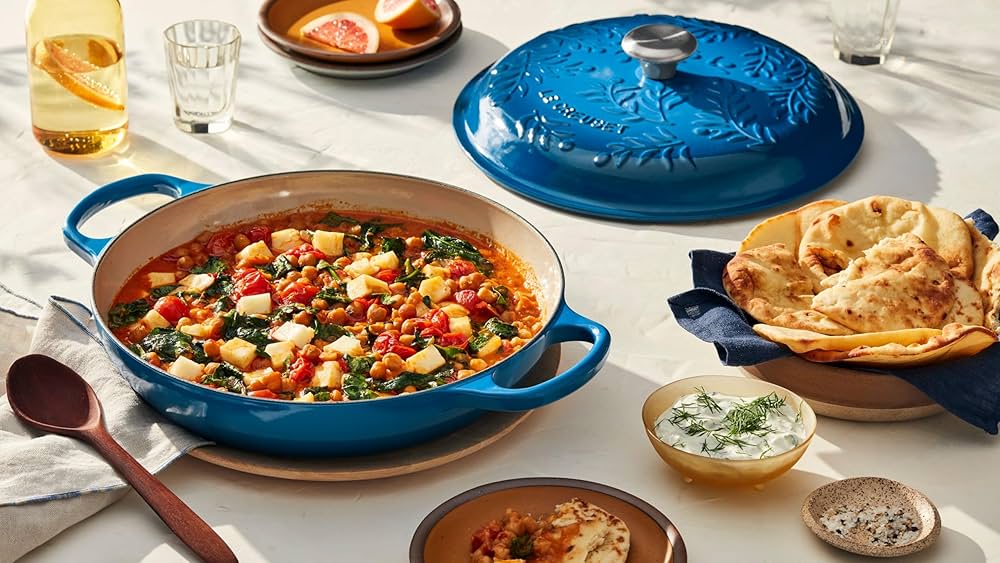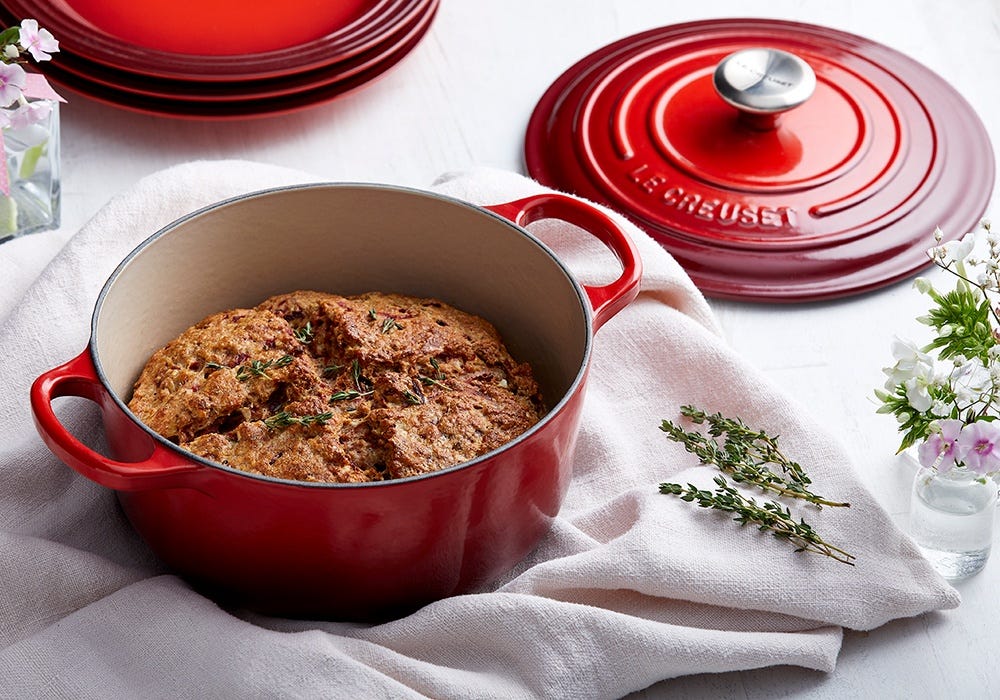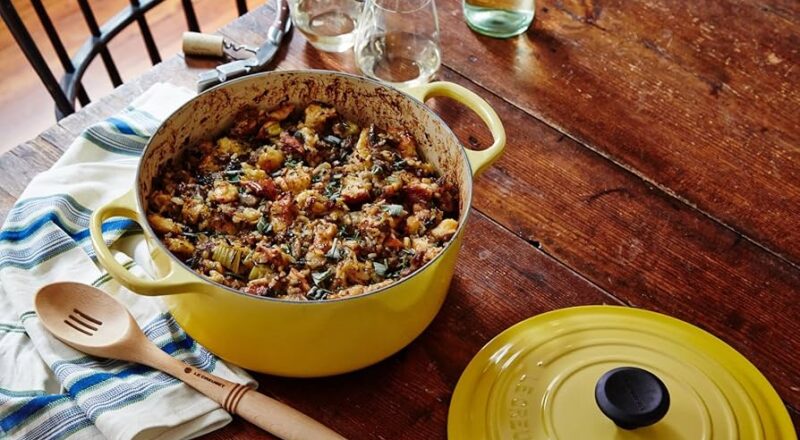The question of whether a cast iron braiser can be used on an open flame is one that many cooking enthusiasts have pondered. With its robust design and versatility, the cast iron braiser is a staple in many kitchens. But is it suitable for direct heat, such as an open flame? This article delves into the suitability of using a cast iron braiser on an open flame, providing insights and guidance for both novice and professional cooks.

Understanding the Cast Iron Braiser
The cast iron braiser is a versatile cooking tool known for its durability and ability to retain heat. It is often used for slow cooking, braising, and even baking. The heavy-duty nature of cast iron makes it a favorite among chefs and home cooks alike.
What Makes Cast Iron Special?
Cast iron is renowned for its heat retention and even cooking surface. These properties make it ideal for a variety of cooking methods, including those that require steady, consistent heat. The ability to withstand high temperatures makes the cast iron braiser a candidate for use on an open flame.
Can You Use a Cast Iron Braiser on an Open Flame?
In short, yes, you can use a cast iron braiser on an open flame. The material’s natural properties make it suitable for high-heat environments. However, there are a few considerations to keep in mind to ensure safe and effective cooking.
Considerations for Open Flame Cooking
When using a cast iron braiser on an open flame, it’s important to monitor the heat level. While cast iron can withstand high temperatures, maintaining a moderate flame will help prevent burning or uneven cooking. It’s also crucial to use oven mitts or heat-resistant gloves, as the handles can become extremely hot.
Benefits of Using Cast Iron Braiser on Open Flame
The ability to use a cast iron braiser on an open flame opens up a world of culinary possibilities. From searing meats to simmering sauces, the braiser’s adaptability allows cooks to experiment with different flavors and techniques.
Enhanced Flavor
Cooking on an open flame can enhance the flavor of your dishes. The direct heat can create a rich, smoky taste that is difficult to achieve with other cooking methods.
Versatility in Cooking
Using a cast iron braiser on an open flame allows for a wide range of cooking techniques, from grilling to roasting. This versatility makes it a valuable tool in any kitchen.
Maintaining Your Cast Iron Braiser
Proper maintenance is crucial to prolonging the life of your cast iron braiser. Regular cleaning and seasoning can prevent rust and maintain its non-stick properties. For detailed cleaning instructions, visit Cast Iron Reheating Methods.
Preventing Rust
To prevent rust, always dry your cast iron braiser thoroughly after washing. Applying a thin layer of oil can also protect the surface from moisture. For more tips on rust prevention, check out Prevent Rust on Cast Iron.
Comparing Cast Iron Braiser with Other Cookware
While the cast iron braiser is ideal for many cooking methods, it’s essential to compare it with other cookware to determine the best fit for your needs. For instance, a braiser might offer different benefits than a casserole pot or frying wok.
Braiser vs. Casserole Pot
Both the braiser and casserole pot are excellent for slow cooking. However, the wide, shallow design of the braiser makes it more suitable for browning and braising, while the casserole pot is better for larger quantities of liquid-based dishes.
Braiser vs. Frying Wok
When comparing a braiser to a frying wok, the main difference lies in the cooking technique. A wok is designed for high-heat, quick cooking, while the braiser excels in slow, steady cooking. For more on this topic, explore Braiser vs. Frying Wok.

FAQs About Cast Iron Braiser and Open Flame
Can I use my cast iron braiser on an open flame outdoors?
Yes, a cast iron braiser can be used on an outdoor open flame. Just ensure even heat distribution by rotating the braiser occasionally.
Will using an open flame damage my braiser?
No, using a cast iron braiser on an open flame will not damage it as long as you monitor the heat and avoid extreme temperatures.
What should I do if my braiser overheats?
If your cast iron braiser overheats, remove it from the flame and allow it to cool naturally. Avoid pouring cold water on it, as this can cause cracking.
For further reading, check out this informative article on braisers to enhance your cooking knowledge.
This article contains affiliate links. We may earn a commission at no extra cost to you.

